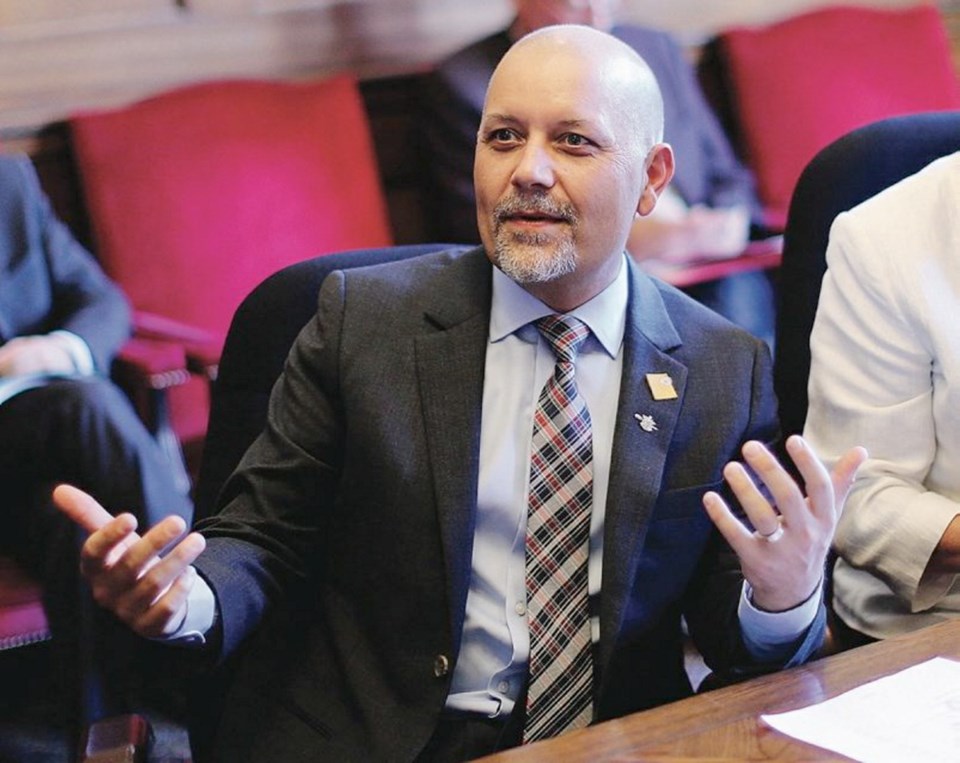This column is inspired by remarks made by Adam Olsen, Green Party MLA for Saanich North and the Islands and a member of the Tsartlip First Nation, at a recent Conversation for a One Planet Region.
We invited Olsen to give us an Indigenous perspective on the concept of a One Planet Region, and he did so eloquently, powerfully and movingly.
I was particularly struck by two key understandings he discussed: The First Nations concept that animals and plants, even the land itself, are our relations, and the need for reconciliation to be wider than just about reconciliation between non-Indigenous and Indigenous people. His approach encompasses reconciliation with people who are not like us, whomever they might be, reconciliation with the other species with whom we share the Earth, and by implication, reconciliation with the Earth itself.
The First Nations view that animals are our relations should be familiar to anyone who has heard an Indigenous blessing, whether at an Indigenous or a public event. There is often reference to “all our relations,” and sometimes specifically to the relations that run, swim, fly or crawl.
This worldview is embedded deep in Indigenous origin stories, as Olsen recounted. For example, in Tsartlip belief (and similar if not identical stories are found in many First Nations) the deer is created from a grandson, and the grandfather was told: “You will hunt the deer forever, but you will be hunting your grandson.” This meant that hunters did not hunt for the sake of hunting, but only if they were hungry, and they treated the deer with respect and used every part of it, rather than treat it is a trophy to hang on the wall.
In another story, the salmon were created by taking the hardest-working people and transforming them into the salmon; so they are relatives, too — and our equals. It is inappropriate to treat them simply as biomass or protein or as a resource to be harvested. There are also stories that help explain why harvests are limited and why female salmon are spared.
Even the land is related to us. A Tsartlip origin story tells us that what we call the Gulf Islands were created by the Creator by throwing people out into the oceans, where they became the islands we see today.
“Those islands are your relatives,” the Creator told the remaining people on the shore. “You look after them and they will look after you.”
Indeed, stories from here and from other Indigenous cultures in many other parts of the world tell of what the Polynesians call tapu (taboo). The Maori Dictionary defines tapu as “sacred, prohibited, restricted, set apart, forbidden” and notes that: “Tapu was used as a way to control how people behaved towards each other and the environment, placing restrictions upon society to ensure that society flourished.”
So at a time when the Christian concept of “Peace on Earth, goodwill to all men” is prominent, I am building on his ideas to broaden that message to “Peace with the Earth, goodwill to all our relations,” in the hope and belief that if we do that, we will go a long way toward achieving peace on Earth and goodwill for all humankind.
Right now, our relationship with the Earth is anything but peaceful. Every day, the news is full of stories about how we are changing the climate, polluting the air, water and soil, depleting what should be indefinitely renewable resources, destroying habitat and endangering or even extinguishing species. This sixth great extinction is a consequence of all of the other changes I have listed; our almost warlike relationship with the Earth is destroying our relations.
But as the Duwamish elder, Chief Seattle, is recorded as saying in the mid-19th century: “We are part of the great web of life, and whatever we do to the web of life, we do to ourselves.”
So in harming and endangering all our relations, we are harming and endangering ourselves. We need to learn from Indigenous perspectives around the world and reinstitute a sense of the sacred and of tapu. We need to live in peace with the Earth and show goodwill to all our relations.
Dr. Trevor Hancock is a retired professor and senior scholar at the University of Victoria’s School of Public Health and Social Policy.



